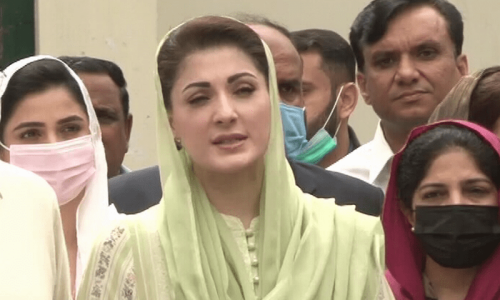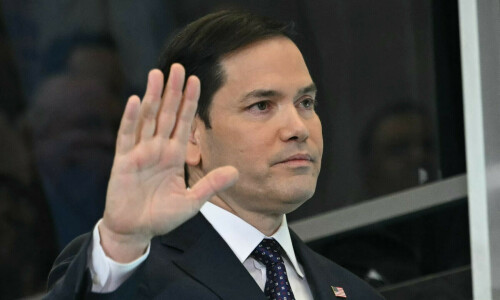DURING his first press conference after being appointed the chief of National Accountability Bureau (NAB) in November 2017, a reporter had asked Justice retired Javed Iqbal about the cases lodged against the Sharif family. The justice assured the reporter that there would be across-the-board accountability within the ambit of law. He then deemed it appropriate to add that he was not affiliated with any political party, and would ensure that the law applied equally to all. In answering the question, the justice provided a touchstone against which the performance of NAB through 2018 could be tested while knowing that the ambit of NAB’s law extends only to public servants and politicians, and does not apply to judges and personnel of the armed forces.
In the rush of prosecuting certain political quarters during the year, NAB did end up exposing its own ineptitude along the way which was noted and commented upon by the highest office in the land. The NAB chief would have surely intended well when he assumed office and promised even-handed justice, but he did do injustice to his own credibility in May when he ‘announced’ an inquiry against former prime minister Mian Nawaz Sharif for allegedly having $4.9 billion kept in India. His ‘decision’ was based on a column published in a small-time Urdu-language newspaper. The Bureau had to then clarify its position by stating that it was investigating the misleading information published in the said newspaper. The clarification was almost immediate, but the damage had been done. It was taken by many as an indication of which way the wind was blowing.
Even before Imran Khan became the prime minister, his accountability rhetoric had resonated with state institutions. Though the present government and its members may have provided the relevant jargon with their consistent campaigning that has continued even after they were elected to office, the mantle of anti-corruption drive rested through the year on the shoulders of the Supreme Court and NAB, with the FBR and FIA playing supporting roles. And, by and large, the process did have a bipartisan feel about it.
Besides the ongoing cases against the Sharif family, Khawaja brothers, Asif Ali Zardari, Faryal Talpur and others in the oppoistion, NAB has also been active in keeping an eye on affairs related directly or indirectly to Prime Minister Khan, Defence Minister Pervez Khattak, Punjab Minister for Local Government and Community Development Aleem Khan, Prime Minister’s Special Assistant for Overseas Pakistanis and Human Resource Development Zulfi Bukhari, Khyber Pakhtunkhwa Chief Minister Mehmood Khan and others. Federal Minister for Science and Technology Azam Swati and Adviser to the Prime Minister on Parliamentary Affairs Babar Awan had to resign in order to face the accountability process.
The opposition would love to point out – and it keeps doing that much – that the key in such cases is to talk about how much and to what extent is the due process followed. The cases of Aleem Khan and Prime Minister Khan’s sister Aleema Khan have been talked about a lot. In the latter case, fines were imposed but no money trail was asked about by the whole accountability mechanism which the opposition has often called an NRO of sorts.
When it came to NAB, two names more waves during the year than did it chief. One was Shahbaz Sharif who on a personal level got his first taste of accountability as it was the elder Sharif who had taken the hit thus far. And other names was that of Shahzad Saleem, the Director-General of NAB’s Lahore operations, whose media interviews and subsequent controversy about the authenticity of his academic qualifications led to calls for internal accountability within NAB itself.
Summing up and looking back, NAB in 2018 continued to be perceived just as it was perceived ever since ‘accountability’ became the buzz word in Pakistan politics many, many years ago. The burden of proof remained heavier on some shoulders than the rest.
















































